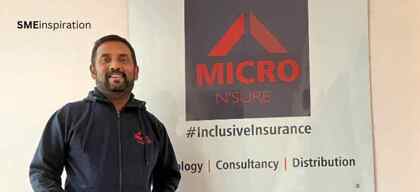ROWE your way to Succes

Employment & HR
398 week ago — 4 min read
August 2016, I started off with my first consulting assignment with a small client. Eager to bring in a change and with the new found freedom of being on my own, I was very excited at the opportunity that was ahead of me. Here is a chance for me to create something that I very much wanted to, an organisation that creates joy at work and a learning environment based on trust and collaboration. As soon as I stepped into the office the first thing that greeted me was an attendance register. All employees were expected to fill the time in and time out on a daily basis. Wait! Not all employees. Those who were considered seniors were not expected to but rest of them had to.
Innocently, I was asking about the purpose of the register, as if I did not know. Prompt came the response, it is to see when does an employee come in and go. Here again with all the innocence I ask, “How does it matter? Can you not define the deliverable and not worry about how long they spend in office. After all what is important is the outcome and not the mere physical presence. I was enlightened about how the nature of job does not allow such changes to happen and how our society is such that people may take advantage of such flexibility (Do people-friendly, trusting nature come to your mind?)
I recalled my earlier stint with this corporate where we used to have swipe in and swipe out to “monitor” how long does an employee spend in office (at least physically being present). When asked about outcomes, managers used to scoff at me and said, “How can they not be here for the time they are expected to be. How do we then know if they are working”? What about Work from Home, I asked. How are you accounting for the time spent working from home? Well, we don’t. The point is they are expected to be in office premises for eight hours.
September 2017, started off with another client and what do you think I noticed first, yes! The swipe in and swipe out to monitor the employees time in office. To add salt to the wound, I was asked to analyse the time logs to see what time did employees come and what time they left. Again with all my innocence, I asked but what about the outcomes. Are we not satisfied with the deliverables? Again, the response was that of how people need to be here and how culturally we may take advantage of flexible hours given.
I am at this point reasonably confident that there are many companies out there which operate with similar mindset (barring few exceptions. Wonder when lightning struck them! ). What is it in our thought process that we want people to be present at one place under the name of discipline and utilisation while sacrificing on the true productivity improvement that can happen (ironically, productivity improvement is the reason why organisations are looking at time logs).
What then can an organisation do to be more productive? I believe the answer lies in the ability of the management to create a Result Oriented Work Environment (ROWE). In such an environment each employee is crystal clear about what their measurable results are and what is expected of them. Performance conversations are ongoing, and teams are highly collaborative, focused on one thing: the customer (agreed upon ultimate outcome). Managers become Results Coaches, and evolve into highly motivated individuals who create a culture of competence, not complacency, treating everyone as adults.
To explore business opportunities, link with me by clicking on the 'Invite' button on my eBiz Card.
Disclaimer: The views and opinions expressed in this article are those of the author and do not necessarily reflect the views, official policy or position of GlobalLinker.
Posted by
Gopalakrishnan SubramanianI am on a mission to transform millions of lives to lead a life of happiness and abundance by helping them gain clarity and positivity of their self.
Network with SMEs mentioned in this article
View Gopalakrishnan 's profile
SME Inspirations
Other articles written by Gopalakrishnan Subramanian
Change Attitude to Reach Effectiveness (CARE)
185 week ago
Can you unlock your blueprint for life?
232 week ago
5 questions you can ask yourself every day
233 week ago
Most read this week















Comments (2)
Share this content
Please login or Register to join the discussion